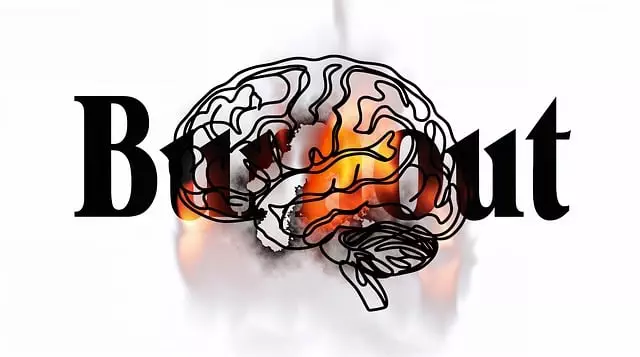The media's portrayal of mental illness significantly impacts public perception, either positively through awareness and empathy or negatively by perpetuating stigma. Accurate, diverse narratives encourage individuals to recognize their mental health struggles and seek professional help, as offered by the Kaiser Permanente behavioral health phone number Littleton. To improve media representation, industry professionals should involve people with lived experiences, consult healthcare experts like those at the mentioned helpline, and integrate mental wellness coaching programs. Collaborative efforts between healthcare providers, media organizations, and advocates aim to challenge stereotypes, inform risk management for mental health professionals, and promote a society that responds to mental illness with empathy.
In today’s media landscape, the portrayal of mental illness can significantly shape public perception and understanding. This article explores the impact of media representations on mental health stigma and offers solutions for more accurate and empathetic storytelling. We delve into strategies that media outlets, like Kaiser Permanente Behavioral Health in Littleton, can adopt to provide resources and education, fostering a more supportive environment. By collaborating to challenge stereotypes, we can create a symphony of change, revolutionizing how mental illness is depicted and perceived. Remember that accurate representation is key to enhancing support and reducing stigma.
- Understanding the Impact of Media Portrayals on Mental Health Perception
- Kaiser Permanente Behavioral Health Phone Number Littleton: A Resource for Support and Education
- Strategies to Enhance Positive Mental Illness Representation in Media
- Fostering Change: Collaborating to Create a More Accurate Narrative
Understanding the Impact of Media Portrayals on Mental Health Perception

The media’s portrayal of mental illness can significantly shape public perception and understanding. When depicted accurately, media platforms can serve as powerful tools to raise awareness, reduce stigma, and foster empathy. However, inaccurate or stereotypical representations can lead to further marginalization and fear. The way mental health conditions are shown in films, television shows, and news articles influences how audiences perceive individuals struggling with these issues. For instance, a study by Kaiser Permanente found that media coverage often portrays mental illness as a personal failure or a result of poor life choices, which can discourage affected individuals from seeking help.
This is particularly concerning for those seeking support through Kaiser Permanente behavioral health phone numbers in Littleton or similar areas, where community members may be more open to reaching out. Accurate representation encourages people to recognize their symptoms and take the first step towards recovery by understanding that mental illness is a complex issue that deserves professional attention. By promoting accurate narratives and diverse stories of resilience, media can contribute to developing effective Stress Reduction Methods and even foster the growth of Mental Wellness Coaching Programs. This shift in portrayal can also enhance individuals’ comfort with discussing their struggles openly and pursuing appropriate Conflict Resolution Techniques.
Kaiser Permanente Behavioral Health Phone Number Littleton: A Resource for Support and Education

For those seeking support and guidance regarding mental health concerns, the Kaiser Permanente Behavioral Health Phone Number Littleton offers a dedicated resource. This helpline connects individuals with qualified professionals who provide confidential counseling and education tailored to their unique needs. By utilizing this service, users can gain access to evidence-based practices and resources that promote better mental well-being.
The phone number serves as a vital tool in addressing the growing need for culturally sensitive mental healthcare. With a focus on understanding diverse backgrounds and experiences, it facilitates effective communication and treatment planning. Moreover, the program incorporates stress management techniques and designs mental health education programs to empower individuals with knowledge and coping strategies for enhancing their overall resilience.
Strategies to Enhance Positive Mental Illness Representation in Media

To enhance positive mental illness representation in media, industry professionals can employ several strategic approaches. One key method is to involve individuals with lived experiences as consultants or contributors, ensuring their voices and perspectives shape the storytelling process. This strategy not only promotes authenticity but also fosters a more nuanced understanding of mental health struggles. Additionally, media outlets should prioritize accurate depiction by consulting with healthcare experts like those available at the Kaiser Permanente behavioral health phone number in Littleton, ensuring that portrayals align with evidence-based practices and current research.
Encouraging the development of Mental Wellness Coaching Programs and promoting Emotional Intelligence within storytelling can also contribute to more respectful and beneficial representations. By integrating Self-Care Practices, media creators can model healthy coping mechanisms and challenge stigmatized narratives. These efforts collectively work towards creating a media landscape that not only reflects but also celebrates the diversity of mental health experiences, ultimately contributing to improved public understanding and support for individuals navigating their own journeys.
Fostering Change: Collaborating to Create a More Accurate Narrative

In the pursuit of a more accurate and compassionate mental illness representation in media, fostering change requires collective efforts from various stakeholders. Collaborating between healthcare providers, media organizations, and community advocates is essential to challenge stereotypes and promote understanding. By engaging in open dialogues, sharing insights from expert sources like those accessible through the Kaiser Permanente behavioral health phone number Littleton, and incorporating diverse narratives, we can create a more nuanced and realistic portrayal of mental health challenges.
This collaborative approach extends beyond representation; it aims to influence Risk Management Planning for Mental Health Professionals and implement Burnout Prevention Strategies for Healthcare Providers. Encouraging inner strength development among both caregivers and individuals seeking support is integral to this process. Together, these efforts can lead to a more supportive societal landscape where mental illness is met with empathy, rather than stigma.
Media portrayal plays a pivotal role in shaping societal perceptions of mental illness. By implementing strategies to enhance positive representation, such as collaboration between industry professionals and organizations like Kaiser Permanente Behavioral Health Phone Number Littleton, we can foster a more accurate narrative. This collective effort ensures that media content not only entertains but also educates, promoting understanding and reducing stigma. Through these initiatives, we move closer to creating an inclusive environment where mental illness is met with empathy and support.






